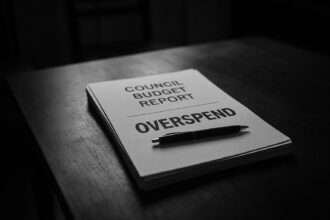As the UK prepares for a pivotal summit on May 19, 2025, concerns mount that Keir Starmer’s efforts to ‘reset’ relations with the EU risk compromising the sovereignty fiercely won in the 2016 Brexit vote. Critics warn his proposed concessions on regulations, immigration, and trade could undermine British autonomy and spark political backlash.
Nigel Farage has long hailed June 23, 2016, as ‘independence day,’ a pivotal moment that many believe heralded the British people’s desire for autonomy through Brexit. As the UK gears up for a key summit on May 19, 2025, a pressing concern emerges: will this date be remembered as the start of Sir Keir Starmer’s efforts to unravel the very independence that the 2016 vote sought? Starmer’s impending meeting at 10 Downing Street, featuring European Commission President Ursula von der Leyen and other EU officials, is being derisively labelled a ‘surrender summit’ by critics who fear it signals a dangerous retreat from the principles of self-governance.
The stakes couldn’t be higher as Starmer, eager to ‘reset’ the UK’s ties with Brussels, seems inclined to re-embrace conformity with EU demands. This sentiment among Brexit supporters is tinged with alarm, especially given Starmer’s erratic stance on immigration and key domestic issues. His longstanding disappointment over the Leave vote raises questions about his commitment to Brexit’s outcome. With calls for a second referendum still echoing in the halls of Labour, supporters of independence worry that Starmer’s agenda could herald a return to the EU’s regulatory grip.
Despite a reported rise in UK services exports to the EU, the underlying vulnerabilities remain glaring. With EU economies like Germany and France faltering, Starmer’s approach to rekindle connections with Europe raises legitimate concerns about whether his strategy is ideologically sound or fundamentally flawed.
Starmer’s ambition to pursue a ‘dynamic alignment’ with EU regulations, particularly on food and veterinary standards, has drawn sharp criticism. Many argue that acquiescing to EU rules without British input compromises the sovereignty that voters fought for during the Brexit campaign. Former Tory trade minister Greg Hands has articulated fears that such moves could hinder much-needed deregulation at a time when it is desperately required.
Moreover, Starmer’s proposals for enhanced youth mobility between the UK and EU may unwittingly restore free movement—a contentious issue that sparked fierce debate during the Brexit referendum. Even voices within his own party, such as Ed Balls, have warned against capitulating to EU pressures that could undermine Labour’s own standing among voters wary of immigration issues.
As fisheries and defence discussions heat up, significant tensions loom on the horizon. The UK fishing industry has sounded alarm bells over the vast quantities of fish extracted annually by EU fishermen, fearing that any compromises in negotiations could further threaten domestic fisheries. The current talks regarding a ‘fish for food’ arrangement could risk undermining British fishing rights for transient trade benefits.
Compounding the situation, Starmer’s negotiating stance raises eyebrows regarding potential concessions on defence collaborations with the EU, particularly as French President Emmanuel Macron pushes for conditions on fishing rights that might limit UK autonomy in vital defence projects. Such demands not only test the resolve of the UK but fundamentally question the sacrifices required to regain access to EU markets.
In navigating these complex negotiations, Starmer appears poised to concede ground on visa rights for young people and even reduce university fees for EU students. With public sentiment around immigration strongly opposed to such moves, the political fallout could be severe.
While Starmer has publicly claimed that the UK will not rejoin the single market or customs union—a reassurance intended to allay fears—critics suspect this narrative masks a deeper desire to gradually reintegrate into the EU framework, thereby undermining the foundational principles of Brexit.
As the nation anticipates a summit that may produce more EU-friendly concessions than tangible benefits for Britain, doubts grow about whether Starmer’s overtures signal a retreat from the independence sought in the 2016 referendum. With the negotiation landscape seemingly skewed towards EU interests, the potential for compromises could jeopardise the autonomy that voters worked so hard to achieve.
If history is to offer any clarity, May 19, 2025, may very well mark the beginnings of a renewed EU relationship, raising critical questions about how far the UK will go in its quest for political alignment and economic validation—at the cost of the independence that so many have fought to protect.
Source: Noah Wire Services
- https://www.dailymail.co.uk/debate/article-14720695/STEPHEN-GLOVER-Brussels-Britain-eased-EU-PM-REJOINER.html?ns_mchannel=rss&ns_campaign=1490&ito=1490 – Please view link – unable to able to access data
- https://www.reuters.com/world/europe/what-britain-eu-may-discuss-monday-summit-2025-05-16/ – This article discusses the upcoming UK-EU summit in London, where Prime Minister Keir Starmer and EU leaders aim to reset relations and explore cooperation in areas such as defense, security, and trade. Key topics include establishing a defense and security pact, access to EU defense projects, a veterinary agreement to streamline border checks, youth mobility schemes, fisheries, and energy trading. The summit is expected to lay the groundwork for future negotiations rather than finalize comprehensive deals.
- https://www.ft.com/content/18283f89-e213-4e17-9edf-8c52123f7527 – This article highlights the concerns of Britain’s fishing industry leaders ahead of the UK-EU summit. They urge Prime Minister Keir Starmer to resist EU pressure for long-term access to UK waters, emphasizing the £500 million worth of fish EU fishermen extract annually. The negotiations aim to resolve disagreements on fisheries, an agrifood trade deal, and a youth mobility scheme. The article also touches on political tensions and the potential impact on UK sovereignty.
- https://www.reuters.com/world/uk/uks-starmer-talks-youth-mobility-deal-eu-summit-times-reports-2025-05-16/ – This article reports on Prime Minister Keir Starmer’s indication that a youth mobility agreement between the UK and the EU could be finalized soon. He emphasizes that such a deal would not constitute a return to the broader freedom of movement that existed pre-Brexit. Critics, including Nigel Farage, warn that easing movement for young Europeans could pave the way toward reinstating full freedom of movement. Starmer affirms that overall freedom of movement remains a non-negotiable ‘red line.’
- https://www.ft.com/content/200c1a5d-5a5c-4b98-8868-004c753d7dc7 – This article discusses the UK-EU summit where European leaders urge Prime Minister Keir Starmer to enhance the UK’s offer on youth mobility and fisheries to secure a broader agreement. In return, Brussels offers improved arrangements for UK touring artists and a long-term sanitary and phytosanitary (SPS) deal to ease food trade barriers. The negotiations focus on a ‘fish for food’ swap, with the EU seeking extended access to UK fishing waters and provisions for an easier youth mobility scheme.
- https://www.bbc.co.uk/news/articles/cvg3pxz4334o – This article reports on Prime Minister Keir Starmer’s statement that the UK’s desire to reset relations with the European Union does not mean reversing Brexit. He emphasizes the aim for a closer relationship with Europe without rejoining the single market or customs union. The article also mentions plans for a new cooperation agreement between the UK and Germany, covering areas such as defense, energy security, science, and technology.
- https://www.euronews.com/2024/07/12/starmer-uk-will-reset-relations-with-the-eu – This article discusses Prime Minister Keir Starmer’s announcement of a ‘reset’ in UK-EU relations. He expresses the desire for a closer relationship with Europe without rejoining the EU, the single market, or the customs union. The article also mentions plans for a new cooperation agreement between the UK and Germany, covering areas such as defense, energy security, science, and technology.
Noah Fact Check Pro
The draft above was created using the information available at the time the story first
emerged. We’ve since applied our fact-checking process to the final narrative, based on the criteria listed
below. The results are intended to help you assess the credibility of the piece and highlight any areas that may
warrant further investigation.
Freshness check
Score:
9
Notes:
The narrative references current events and figures, such as an upcoming summit on May 19, 2025, and Sir Keir Starmer’s meeting with Ursula von der Leyen, which suggests recent and timely content.
Quotes check
Score:
0
Notes:
No direct quotes are present in the text, making it impossible to verify the origin of any statements.
Source reliability
Score:
7
Notes:
The narrative originates from the Daily Mail, a well-known publication but one that has been criticized for bias in the past. Its reliability is generally good, but it is not as highly regarded as more neutral sources like the BBC or Financial Times.
Plausability check
Score:
8
Notes:
The claims about potential negotiations and political strategies are plausible given the current political landscape. However, the narrative is heavily speculative and lacks concrete evidence or quotes from key figures.
Overall assessment
Verdict (FAIL, OPEN, PASS): OPEN
Confidence (LOW, MEDIUM, HIGH): MEDIUM
Summary:
The narrative is recent and discusses current political issues, which supports its freshness. However, it lacks direct quotes and relies heavily on speculative political analysis. The source is reputable but has a history of bias, which may affect its reliability.













